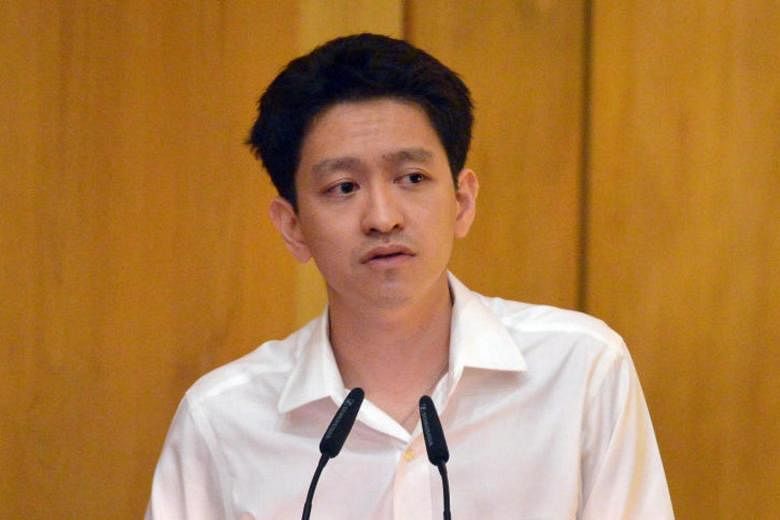SINGAPORE - In contempt proceedings that started three years ago, the Attorney-General's Chambers (AGC) on Thursday (July 2) asked the High Court to impose a $15,000 fine on Mr Li Shengwu, nephew of Prime Minister Lee Hsien Loong, over a post he made on Facebook in July 2017.
State Counsel Low Siew Ling also argued that Mr Li should be given a default sentence of two weeks' jail if he fails to pay the fine.
Justice Kannan Ramesh reserved judgment and will give his decision at a later date.
Mr Li, who announced in January that he would no longer participate in the proceedings, was absent from court.
But Ms Low asked for the hearing to proceed, saying that Mr Li had chosen to absent himself despite multiple reminders sent to him in February and March that he has been ordered to attend court to be cross-examined.
The reminders were sent via e-mail as well as via courier to Harvard University, where Mr Li, 35, is an assistant professor of economics, she said.
Ms Low said she would not ask the court to exclude Mr Li's defence affidavit, which he filed in September last year, but argued that his assertions should be given little weight, given his refusal to be cross-examined.
"We do not want to give him any opportunity to suggest that we are trying to shut out his defence," she said.
In his July 15, 2017, post, Mr Li wrote that the Singapore Government is "very litigious and has a pliant court system".
The post was related to the ongoing family dispute involving his father, Mr Lee Hsien Yang, his aunt, Ms Lee Wei Ling, and PM Lee over the Oxley Road home of their late father, Mr Lee Kuan Yew, Singapore's founding Prime Minister.
Mr Li's post also included a link to a 2010 New York Times editorial which criticised his late grandfather.
On Aug 4, 2017, the AGC started contempt proceedings against Mr Li, who then mounted an unsuccessful legal challenge against the process by which court papers were served on him in the United States.
In his defence, Mr Li had contended that his post, which was visible only to his Facebook "friends", was meant to be private.
He blamed a "malicious friend" for taking a screenshot of the post which was circulated on three websites and later picked up by mainstream media.
He also said he did not think his post would gain widespread attention as he was not a public figure.
On Thursday, Ms Low argued that Mr Li should be found guilty of scandalising the judiciary, as his post posed a real risk of undermining public confidence in the administration of justice.
She argued that the meaning of the words "has a pliant court system" is that the judiciary is not independent and is in fact subservient to the Government.
Ms Low argued that Mr Li's Facebook friends likely comprised a substantial number of people in Singapore, including members of the media.
She noted that an AGC officer with no connections to Mr Li had 15 mutual friends with him, and that research shows an average adult had more than 300 Facebook friends.
This suggested that Mr Li had a large number of Facebook friends, she said.
She argued that Mr Li had no basis to expect that his Facebook "friends" would not share the post with others.
He also did not take steps to warn them against republishing his post, she said.
Ms Low also argued that Mr Li "engineered" his withdrawal from the proceedings after it became clear that he would be required to answer questions posed by the AGC on how many Facebook "friends" he had at the time.
She argued that it was "entirely foreseeable" that Mr Li's post would be widely republished in the public domain, given his connection to the Lee family and the timing of the post amid the family feud.
Mr Li ought to have known that his "inflammatory" post would capture attention, given that he was denouncing the court system that his grandfather had "defended his entire life", she argued.
She sought a "substantial fine" of at least $15,000, pointing to the gravity of his allegations and his lack of remorse.
She cited the case of academic Christopher Lingle, who was fined $10,000 for contempt 25 years ago.
She also cited past cases involving civil activist Jolovan Wham and author Alan Shadrake in arguing for the default jail term.


